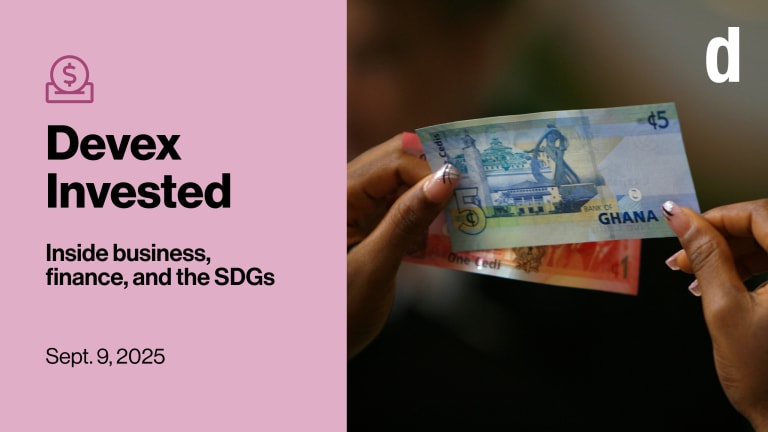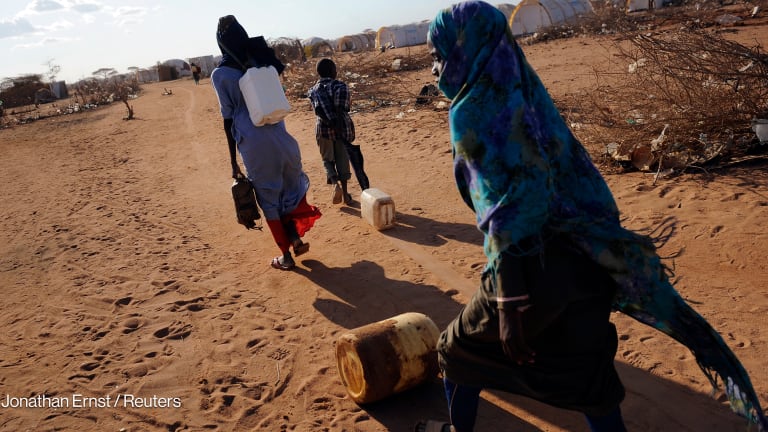
Donors need to rethink their strategies on economic growth in Africa, as the current prescriptive method is not leading to actual transformation, according to several development economists gathered this week in Accra, Ghana.
The main reason why growth has been so slow in Africa in the past 50 years is not due to some of the more popular explanations like bad leadership, poor institutions and corruption. These problems do play a part, but the key issue is bad ideas, Celestin Monga, economic adviser to the World Bank senior vice president and chief economist, said Wednesday during the annual conference of the Global Development Network, an international organization that builds global research capacity in development.
While the current strategies for economic growth may have grown from recommendations from other development economists, often only certain suggestions have been cherry-picked, leading to a situation where a country can appear to be performing well — but is actually not undergoing an economic transformation at all.
A key example is the World Bank’s Doing Business Report, Monga noted. Rwanda, for instance, scores very well by the metrics of the survey, but the reality is that there is a massive unemployment problem preventing true economic growth and poverty reduction in the country.
He criticized the “Washington Consensus,” a set of policies that U.S. government and international financial institutions based in the U.S. federal capital determined in 1989 to be key elements to policy reform that countries should adopt to boost economic growth.
The problem with that agreement, according to Monga, is that “it really was not a strategy for growth.”
Many development policies have been built on the principles of the Washington Consensus, which envisions that if a country completes a long list of reforms laid out by donor agencies and IFIs, then foreign investment can and will come. In reality, those policies have not achieved what structural transformation — the reallocation of economic activity from the least-productive sectors, such as agriculture, to more productive ones — which is a key element in economic growth and development.
How to move forward
So what can be done to address some of these underlying problems in development policy? John Page, a senior fellow at the Brookings Institution and former chief economist for Africa and director of poverty reduction at the World Bank, had a few suggestions.
First, he said, it’s critical that donor agencies actually live up to the promises made in the Paris Declaration and trust Africans.
Donors say they “believe in country ownership so they should walk the walk,” explained Page, adding that “if a government comes to you with something off the playlist, off the investment climate agenda, be prepared to listen.”
While he acknowledged the importance of fiduciary responsibility and doesn’t advocate supporting initiatives that will not be productive, it is critical given the complexities in Africa to let countries determine their own path.
There are a few nations where the governments have begun to push back against certain prescriptions from donors, and chief among them is Ethiopia, which Page said by some measures is the fastest-growing economy on the continent. A more country-driven program is working in Ethiopia, and that should serve as proof that placing trust in Africans is in fact the best path forward, he stressed. Learning to Compete, a research project undertaken by the Brookings Institution, the African Development Bank and the United Nations University World Institute for Development Economics Research, has helped illustrate some of these issues, Page said.
Also, he mentioned that issues of corruption or governance challenges don’t mean that growth cannot occur. He pointed to the example of South Korea, which in the 1950s had a corrupt government and a unique set of values, but has achieved structural transformation and incredible economic growth, so much that it has turned from aid recipient to emerging donor in just a few decades.
Local private sector and civil society have a role to play as well. The local private sector will help determine the key growth industries that have the most potential to create employment opportunities and shift away from the prevalence of agriculture. On the other hand, civil society will be there to scrutinize governments, keep pressure groups in check, help fight corruption and support parliaments with the information they need to better evaluate policies, Page said.
“The point of aid is to make things happen so why don’t you go to a system where you define outcomes and not inputs,” the expert noted. “Why not have a criterion that says, OK, we have enough faith in the domestic system of this country and the governance of this country that [money] will be well spent but it doesn’t have to conform to our view of what they should do.”
Join Devex, the largest online community for international development, to network with peers, discover talent and forge new partnerships — it’s free. Then sign up for the Devex Impact newsletter to receive cutting-edge news and analysis every month on the intersection of business and development.








